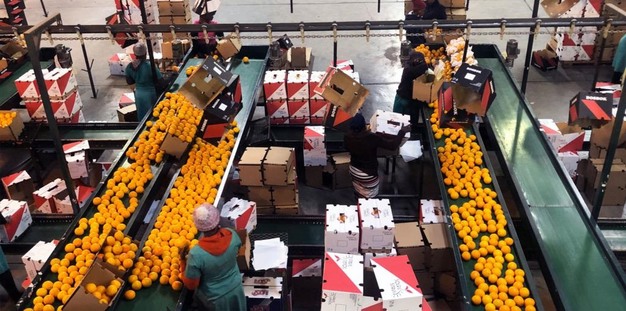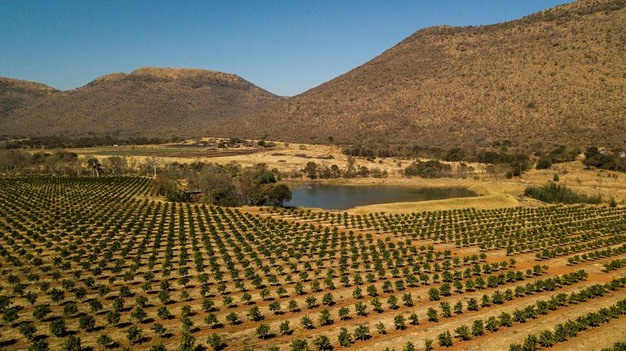 With the start of Midknight Valencias, South Africa's orange season shifts into its highest gear: the orange is sought-after in the Far East and Europe for its seedlessness. Therefore, Midknights account for almost 40% of South Africa's Valencia orchards, according to 2023 figures.
With the start of Midknight Valencias, South Africa's orange season shifts into its highest gear: the orange is sought-after in the Far East and Europe for its seedlessness. Therefore, Midknights account for almost 40% of South Africa's Valencia orchards, according to 2023 figures.
"The price for juice oranges is very beneficial. Clients have to pay a premium for our oranges, otherwise farmers will send them away for juicing, as there's no risk attached to that option. In my opinion," says Jacobus van Staden, managing director at Hoedspruit-based Sunfed/Soleil Sitrus, "and I've been discussing it with colleagues: I don't see the demand for juice oranges diminishing over the next five years."
The main reason are the thousands of hectares of Brazilian oranges affected by the dreaded Huanglongbing disease, and that gap cannot quickly be filled. For that reason Van Staden, who markets the citrus of farms dotted between Hoedspruit, Ohrigstad and Letsitele in the country's northeast, remarks: "South African citrus, and especially South African oranges, are in a very good space at the moment."
Oranges: there's a market for everything
Sizing has been a motif of the 2024 citrus season and he acknowledges that Valencias are on the smaller side however, he notes, it's not such a big deal as it was this season with grapefruit.
"The nice thing with oranges is: there's a market for everything. Large calibres go to the Far East, average calibres to Europe, and if the fruit is small you can send it to India or Bangladesh."
Only, not much is sent to Europe at the moment, and very few South African oranges have gone there thus far this season. The prices offered by European buyers are lower than farmers can get locally from juicers. "South African oranges will do well later, towards August, September and October, but for now there is the Egyptian fruit that couldn't get through the Red Sea; an incredible amount of oranges was pushed into Europe." South Korean option became even more attractive
South Korean option became even more attractive
The grapefruit season started really well, he says, and the fruit was well-received in Canada and China.
Four, five weeks ago, grapefruit prices dropped quickly though, with the arrival of processing grade grapefruit. The grapefruit industry self-regulates to limit to 10% the amount of processing grade grapefruit exported and Van Staden feels that in this respect they did well, until the price dropped sharply.
South Korea waived their 30% import duty on South African grapefruit, first for six months and then for the whole full year. "We sent an incredible amount of grapefruit to Korea this season. The tariff relief helped us a lot."
The preponderance of small fruit this season meant that exporters immediately pencilled in that fruit for Taiwan and Malaysia, but that approach turned into a problem. "Those countries are small fruit markets and so they received a lot of grapefruit, which made it really very difficult later in the season to send there."

 Valencia orchards near Ohrigstad, LImpopo Province
Valencia orchards near Ohrigstad, LImpopo Province
For more information:
Jacobus van Staden
Soleil Sitrus/Sunfed
Tel: +27 15 817 1826
Tel: +27 73 015 7011
Email: jacobus@sunfed.org
https://www.soleilsitrus.co.za/
